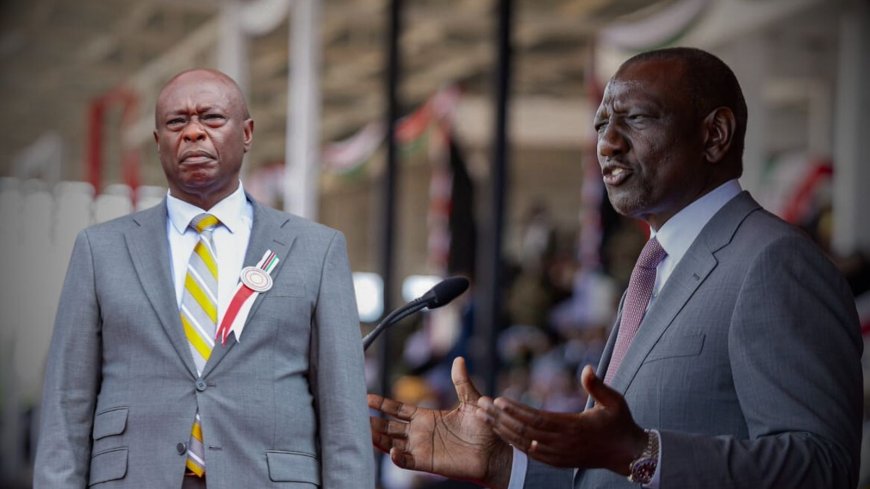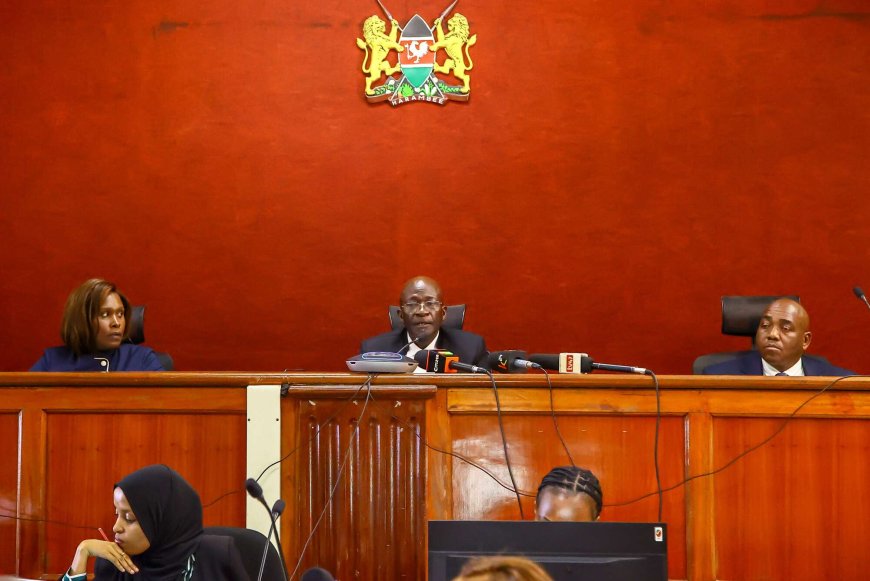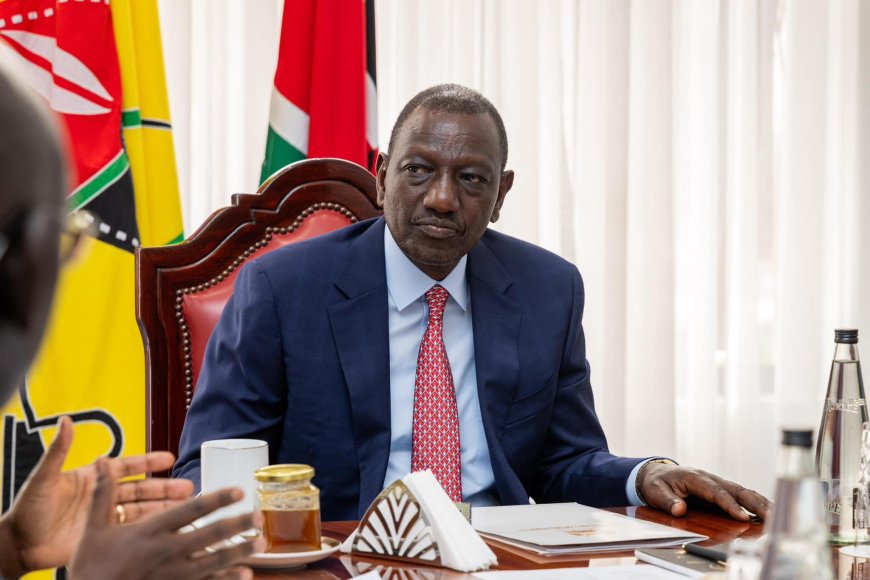Blow To Ruto In Moving Gachagua Impeachment Case To Supreme Court
Justice Fridah Mugambi of the three-judge bench consisting of Justices Eric Ogolla and Anthony Mrima ruled that the High Court had jurisdiction to hear the case.

President William Ruto has suffered a blow after the High Court dismissed his plea that the case involving the impeachment of former deputy president Rigathi Gachagua be referred to the Supreme Court.
Justice Fridah Mugambi of the three-judge bench consisting of Justices Eric Ogolla and Anthony Mrima ruled that the High Court had jurisdiction to hear the case.
Per her determination, the hearing of the petition challenging the impeachment of the deputy president was a constitutional process and thus the High Court, just like the Supreme Court, had equal powers to determine the case.
"The jurisdiction to hear disputes arising from the impeachment of a president and deputy president does not lie with the Supreme Court within the realm of original and exclusive jurisdiction," noted Justice Mugambi.

A 3-judge bench of the High Court during court proceedings as of October 23, 2024. /X.JOHN MBATI
"It is undisputed that the impeachment of the deputy president is a constitutional process & the authority to determine whether the merits and procedure of such impeachment process falls squarely within the jurisdiction of the High Court. We do hereby find and hold that this court has the jurisdiction to sit and determine the matter that is before it."
On Tuesday, October 22, President Ruto's legal team challenged the High Court's powers to hear petitions filed by Gachagua, arguing that the High Court cannot hear and determine the cases, given that such a matter was spared for the Supreme Court.
"The honourable court lacks jurisdiction to entertain the instant petition for reasons that, by dint of Article 165 (5) (a) of the Constitution, the honourable court cannot determine the petition as canvassed and/or grant the prayers sought, being a matter reserved for the exclusive jurisdiction of the Supreme Court," President Ruto's lawyer Adrian Kamotho Njenga argued.
The lawyers thus argued that it was an abuse of the court process. This came after the impeached Deputy President moved to court to block nominated deputy president Kithure Kindiki from being sworn into office.
Ruto's legal team, as a result, wanted the High Court to recuse itself and hand it over to the Supreme Court.
"The Petition violates the provisions of Article 143 (2) of the Constitution as and the express order of the Supreme Court at paragraph 2117 (iv) of the decision in Attorney-General & 2 others v Ndii & 79 others; Dixon & 7 others (Amicus Curiae) (Petition 12, 11 & 13 of 2021 (Consolidated)) [2022] KESC 8 (KLR) (31 March 2022) (Judgment), to the effect that civil proceedings cannot be instituted in any court against the President or the person performing the functions of the office of the President during their tenure of office in respect of anything done or not done under the Constitution of Kenya 2010," the lawyer stated in court documents.
On October 24, the legal team dropped out of the case, declaring that they would no longer be representing the Head of State in the matter.
Kamotho argued that the Head of State's decision to join the case was against the law, and referred to a Supreme Court judgement in 2022 that ruled that the president could not be enjoined to any legal proceeding such as the one filed by the former deputy president, to which President Ruto had been listed as the sixth respondent from the ongoing court case.







